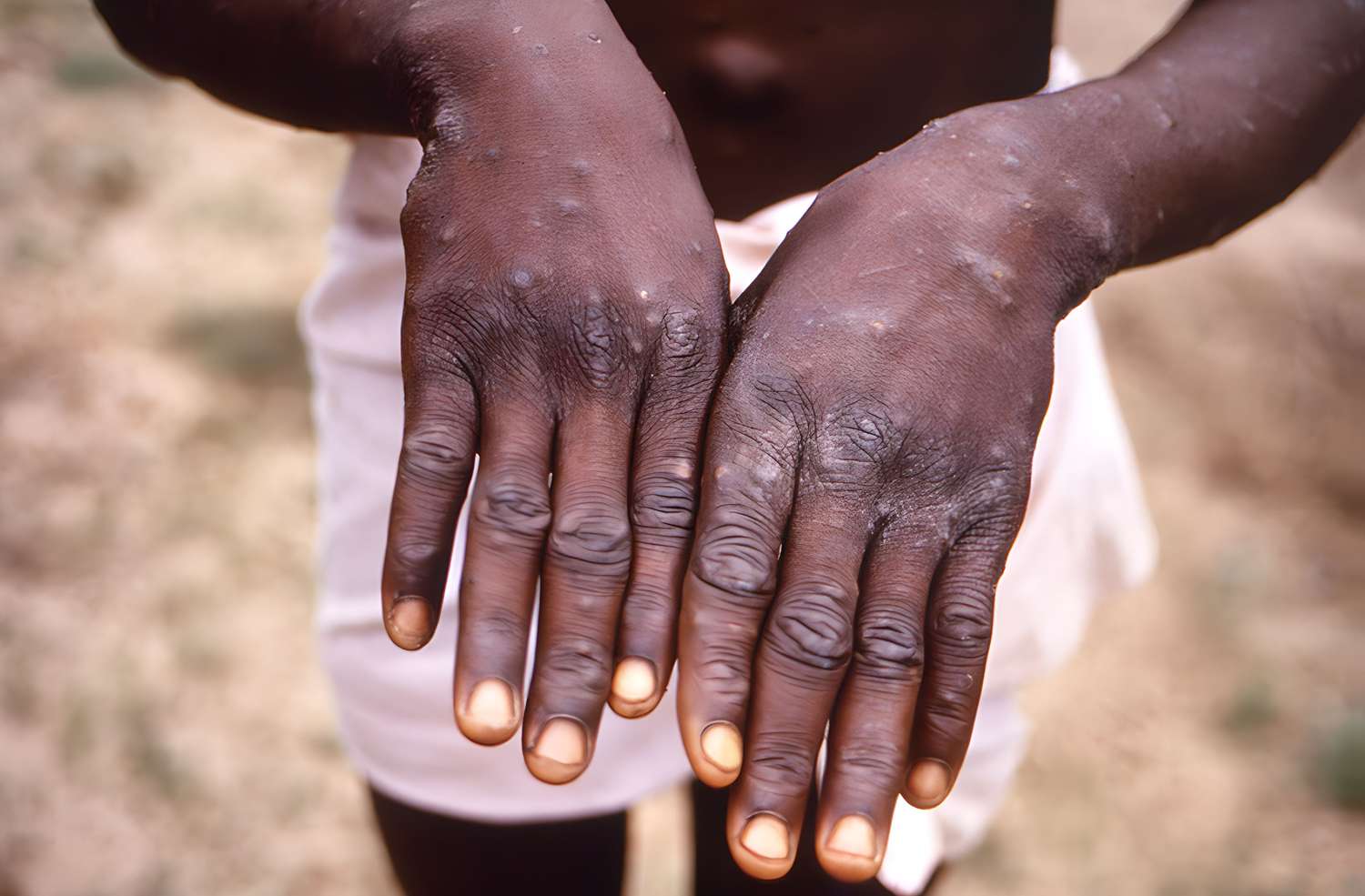"Mpox Declared Global Health Emergency: Distinguishing Factors of the Current Outbreak"

Mpox is now a “public health emergency of international concern,” according to a declaration by the World Health Organization (WHO) on August 14.
Cases have risen in Africa, where there have been more than 15,000 cases and 537 deaths this year, and this particular strain of mpox—known as clade Ib—has also been detected in Sweden and Thailand.
However, it’s not the first time the organization has named the disease—formerly known in the United States as monkeypox—a global health emergency. That also happened in 2022, during a global outbreak of the virus that sickened almost 100,000 people, including more than 33,000 in the U.S.
So, what are the differences between the 2022 outbreak and what’s happening now? Infectious disease doctors explain.
Mpox is a disease caused by the monkeypox virus. According to the WHO, it causes symptoms similar to smallpox, although they tend to be less severe.
The monkeypox virus can spread through close contact, including sexual contact, per the Centers for Disease Control and Prevention. However, it can also be contracted after touching contaminated objects, such as sheets, towels, and clothing.
Most people infected with mpox won’t show signs of the virus for three to 17 days. After that, they may experience flu-like symptoms, followed by a characteristic rash that may show up on the hands, feet, chest, face, mouth, or near the genitals. The majority of infected people will recover on their own, but the virus can be deadly.
The WHO declared mpox a “public health emergency of international concern” a couple of weeks ago after cases of the virus rapidly increased in the Democratic Republic of the Congo (DRC) and other African nations.
Mpox is more common in central and west Africa, and two clades have emerged—clade I and clade II. Clade I is the form of mpox fueling the current outbreak, and it’s known for causing more severe disease than clade II.
“The emergence of a new clade of mpox, its rapid spread in eastern DRC, and the reporting of cases in several neighboring countries are very worrying,” WHO Director-General Tedros Adhanom Ghebreyesus, PhD, said in a statement. “On top of outbreaks of other mpox clades in DRC and other countries in Africa, it’s clear that a coordinated international response is needed to stop these outbreaks and save lives.”
While this outbreak has some things in common with the 2022 outbreak, there are some key differences.
A major one is that the previous clade that sparked the global outbreak was clade II—this is clade I, John Hu, MD, PhD, infectious disease physician and clinical assistant professor of medicine at the University at Buffalo Jacobs School of Medicine and Biomedical Sciences, told Health.
“The 2024 strain likely represents a recent mutation,” he said. “Studies show that it diverges from previously circulating strains in the Democratic Republic of Congo, where this new variant was first identified.”
Clade I has “traditionally been more severe” than clade II, Cameron Wolfe, MBBS, infectious disease physician and professor of medicine at the Duke University School of Medicine, told Health. But it’s too early to know for sure whether it will cause more severe illness, he added.
“There have been fatalities already this year, typical of Clade I, but whether it’s more infectious than the ‘parent strain’ or original versions of Clade I, we need more time to figure out,” he said.
Anne Rimoin, PhD, MPH, a professor of epidemiology at the UCLA Fielding School of Public Health, agreed.
“This is the big question,” she told Health. “Clade I is thought to be more severe than clade II, but we don’t have enough data to truly make that statement today,” she said. Factors like immunity in the population and access to care can also play a role in how severe this strain of mpox can be for someone, Rimoin said.
The other difference between the two outbreaks is the route of transmission. The 2022 mpox outbreak primarily affected men who have sex with men, but that’s not the case this time around.
“Close sexual contact is still a risk factor,” Wolfe said, but this particular outbreak appears to be affecting a larger demographic that includes heterosexual people and children. “Whether that’s a viral difference, or more likely an effect of different behaviors that lead to spread isn’t fully determined yet,” he said.
Public health officials do not seem concerned about a COVID-19-style lockdown in the future. WHO’s European director Hans Kluge told reporters in a media briefing on August 20 that “mpox is not the new COVID.” He added, “We know how to control mpox, and—in the European Region—the steps needed to eliminate its transmission altogether.”
Wolfe also thinks the mpox outbreak is unlikely to cause a future lockdown. “This is not spread through respiratory transmission like COVID or an avian flu pandemic,” he said, “so mass public health restrictions just don’t work for an infection like this.”
While research showed the antiviral drug tecovirimat (or TPOXX), which is used to treat mpox, did not reduce how long people with the clade I virus had lesions and doesn’t seem to be as effective against this strain as it as on clade II infections, there is a vaccine for mpox.
The vaccine is readily available in the U.S., where it’s primarily given to men who have sex with men in the U.S.—the clade II strain has been circulating at low levels in the U.S. since the 2022 outbreak, with around six to seven cases of mpox detected each day. However, it’s not as readily available in the countries currently dealing with the outbreak.
“Access to vaccines remains a significant challenge in many regions affected by the current mpox outbreak,” Hu said. “However, the Africa CDC has received pledges of vaccine donations from the European Union, the U.S., and Japan.”
“We have plenty of vaccine [in the U.S.], and we do not currently expect this to make as significant an impact as it did in 2022,” Wolfe added.
But Rimoin anticipates that mpox will continue its spread before the outbreak is contained. “People travel, and viruses do not respect borders,” she said. “An infection anywhere is potentially an infection everywhere. This is certainly true when it comes to mpox.”
Rimoin recommends that Americans keep the mpox outbreak in perspective—but also stay informed. “We have been seeing cases of mpox increase over time for two decades, some of which has been expected,” she said. “But this huge increase is certainly beyond what we expected.”




